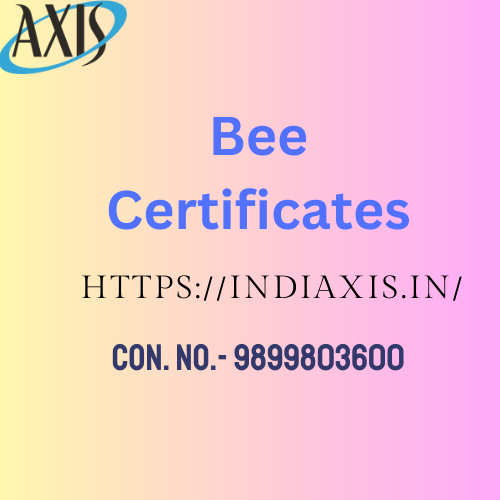
Bee certificates play a crucial role in ensuring sustainable beekeeping, maintaining bee health, and enhancing the quality of honey and other bee-derived products. These certifications are designed to standardize beekeeping practices, promote environmental responsibility, and protect consumers from adulterated or unsafe honey. Whether you are a beekeeper, honey producer, or consumer, understanding the significance of bee certificates can help you make informed decisions.
What Are Bee Certificates?
Bee certificates are official documents issued by relevant regulatory authorities, certifying that a beekeeper or honey producer complies with established industry standards. These certificates verify that beekeeping practices align with ethical, sustainable, and health-conscious principles. They can cover various aspects of beekeeping, such as organic honey production, disease prevention, colony management, and fair trade practices.
Types of Bee Certificates
There are several types of bee certificates available, depending on the region and the specific requirements of the beekeeping industry. Some of the most common certifications include:
1. Organic Bee Certification
Organic bee certificates ensure that honey production follows strict organic farming guidelines. This means that bees must forage in areas free from synthetic pesticides, herbicides, and genetically modified plants. Additionally, the use of antibiotics and artificial feeding is restricted. Beekeepers seeking this certification must also ensure that their hives and extraction processes comply with organic standards.
2. Fair Trade Bee Certification
Fair trade bee certification focuses on ethical beekeeping practices, ensuring that beekeepers receive fair compensation for their honey and other bee products. This certification is particularly important for small-scale beekeepers in developing countries, as it helps them gain better market access and improve their livelihoods.
3. Good Beekeeping Practices (GBP) Certification
This certification ensures that beekeepers follow hygienic and sustainable beekeeping methods. It covers colony management, pest and disease control, hive maintenance, and responsible honey harvesting techniques. Adhering to GBP certification standards helps prevent the spread of bee diseases and ensures the production of high-quality honey.
4. Non-GMO Certification
This certificate guarantees that honey and other bee products come from hives located in non-GMO (Genetically Modified Organism) environments. Consumers seeking natural and unaltered bee products often prefer honey with this certification.
5. Kosher and Halal Bee Certification
These certifications verify that honey and other bee-derived products comply with specific religious dietary laws. Kosher certification ensures that honey is produced and processed according to Jewish dietary laws, while Halal certification ensures compliance with Islamic dietary guidelines.
Benefits of Bee Certificates
Obtaining bee certificates offers numerous benefits to beekeepers, honey producers, and consumers alike.
For Beekeepers and Honey Producers:
- Market Access and Consumer Trust – Certified honey is more likely to be accepted in international markets, as it meets strict quality and safety regulations.
- Higher Product Value – Certified honey often commands higher prices, as consumers are willing to pay more for guaranteed quality and ethical sourcing.
- Sustainable Beekeeping – Certifications encourage responsible beekeeping practices, ensuring bee health and environmental conservation.
- Legal Compliance – Many countries require beekeepers to have specific certifications to sell honey commercially.
For Consumers:
- Quality Assurance – Certified honey is free from harmful chemicals, antibiotics, and artificial additives.
- Ethical Sourcing – Certifications ensure that honey is produced using fair trade and environmentally friendly practices.
- Health Benefits – Certified honey is often richer in nutrients and free from contaminants, making it a healthier choice.
How to Obtain Bee Certificates
To obtain bee certificates, beekeepers must follow these steps:
- Research Certification Requirements – Different regions have different certification standards, so it’s essential to understand the specific requirements for the desired certificate.
- Implement Best Beekeeping Practices – Ensure that beekeeping operations align with the certification guidelines, including sustainable hive management and natural foraging areas.
- Undergo Inspection and Testing – Certification bodies conduct inspections and test honey samples to verify compliance.
- Maintain Compliance – Regular audits ensure continued adherence to certification standards.
Conclusion
Bee certificates play a vital role in promoting sustainable beekeeping, ensuring high-quality honey production, and protecting consumers from unsafe products. Whether you are a beekeeper looking to expand your market or a consumer seeking authentic honey, bee certificates offer assurance of quality, ethical sourcing, and environmental responsibility.





Leave a Reply